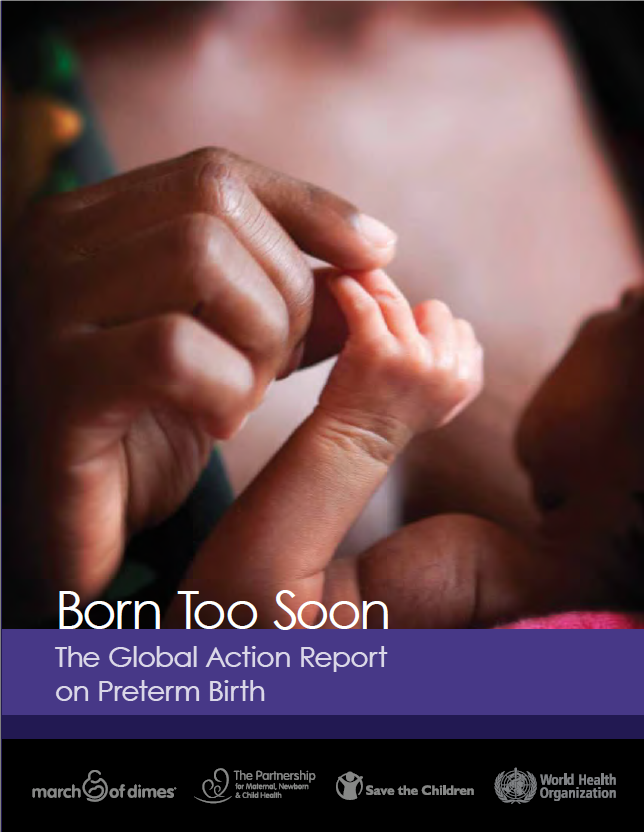Global Action Agenda on Preterm Birth & Stillbirth
Goals Set for 2015
Preterm birth and stillbirth are complex global health problems requiring an interdisciplinary approach and an international commitment. The Global Action Agenda (GAA) is a comprehensive set of recommendations that include short-, intermediate- and long-term milestones and success metrics. The primary goal of this agenda is to forge a collaborative effort toward achieving common goals to prevent preterm birth and stillbirth, and to improve related maternal, newborn and child health outcomes.
The GAA was published as article 7 in the 2010 “Global report on preterm birth & stillbirth: the foundation for innovative solutions and improved outcomes” with BMC Pregnancy and Childbirth.

Who Created It?
The Global Action Agenda was developed by more than 200 stakeholders who attended the 2009 International Conference on Prematurity and Stillbirth. GAPPS co-convened this four-day conference with the Bill & Melinda Gates Foundation, March of Dimes, PATH, Save the Children, UNICEF and the World Health Organization. Participants included leading international researchers, policymakers, health care practitioners and philanthropists.
GAA Core Objectives
- Advance discovery of the magnitude, causes and innovative solutions
- Promote development and delivery of low-cost, proven interventions
- Improve advocacy efforts to increase awareness that preterm birth and stillbirth are leading contributors to the global maternal and newborn health burden
- Increase resources for research and implementation
- Consider ethical and social justice implications throughout all efforts
Snapshot of Short-Term Stakeholder Progress
Following is list of examples for short-term milestones and current work in progress:
- Analyzing and building research capacity globally
- Developing preterm birth & stillbirth classification systems
- Conducting fetal and newborn growth research
- Facilitating, initiating basic & translational research
- Prioritizing research for 2010 and beyond
- Publishing, presenting ethical findings
- Advocating for increased awareness and funding
